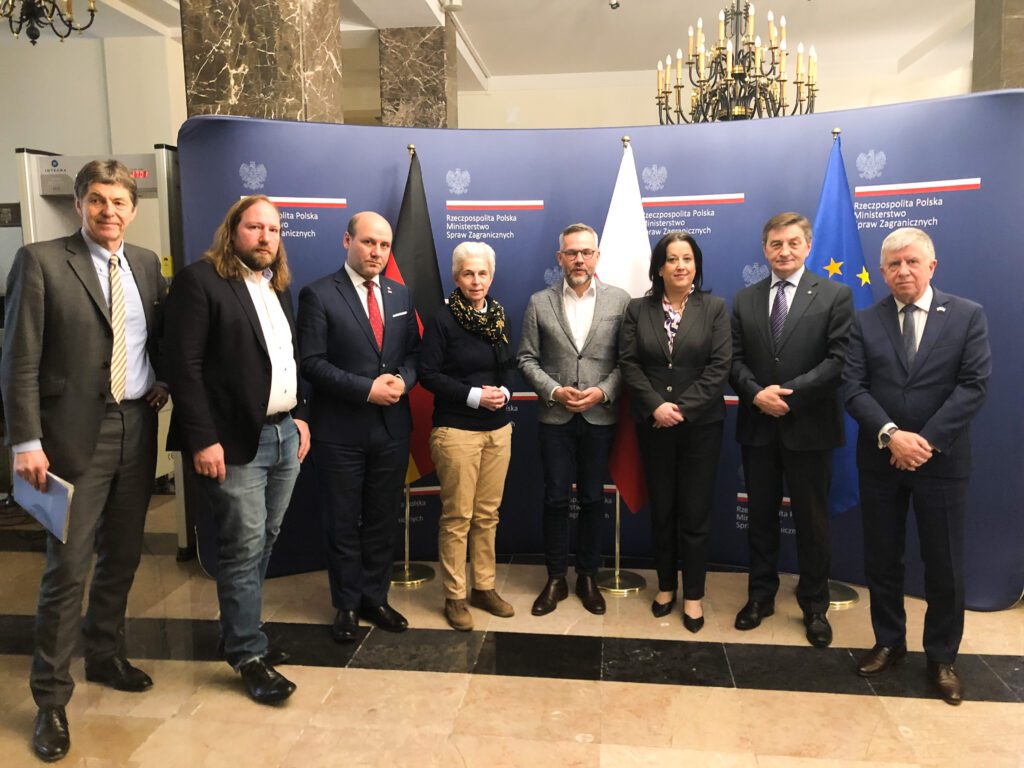On April 12, 2022, in the Ministry of Foreign Affairs, the chairman of the Foreign Affairs Committee, Marek Kuchciński, met with his counterpart from the Bundestag, Michael Roth. The talks were also attended by the heads of the National Defense Committee, Michał Jach, and the heads of the European Union, Anita Czerwińska. The host of the meeting was Deputy Minister of Foreign Affairs Szymon Szynkowski vel Sęk.
It was a very honest conversation, mainly about Russian aggression - perceived not only as an attack on Ukraine, but also on Euro-Atlantic security and the international order. Russians are committing crimes, including genocide.
There is a widespread expectation of public opinion that sanctions against Russia should be strengthened, including stopping oil and gas imports, as Putin is arming his army with this money. Russian ships should also be banned from accessing European ports and sanctioned as many as possible of oligarchs who finance Putin's army. These are just some of the necessary steps to stop Russia's aggression against an independent state in the middle of Europe. Germany's role in persuading hesitant EU states to impose strong sanctions is essential. More humanitarian aid is also needed. The states of the free world must work closely together to bring about the desired results.
It will be possible to ensure peace in Europe only if Ukraine repels Russia's attack and wins. NATO countries should therefore provide heavy weapons with which Ukrainian troops could also recapture territories.
The European Union must come together to defend our values in Eastern Europe and the Western Balkans against Russian aggression. Finally, we must also keep our promises: opening accession talks with Albania and North Macedonia, and speeding up preparations for the accession of Ukraine, Moldova and Georgia to the EU. Unity, resilience and solidarity are essential for the EU.
According to Der Spiegiel, Germany is supplying Ukraine with much more weapons than it has declared. The unheard-of resistance of the Ukrainian army, pressure from the free world and German public opinion made Germany reevaluate its priorities, changing its attitude from "we do not send weapons at all" to "send some helmets" to "we send weapons worth several dozen million euros". The data show that in addition to the already known 1,000 launchers and 500 Stinger missiles, Germany also supplied other equipment to Ukraine.
The dark side of Russian-EU relations still remains the fact that Putin's war is fought thanks to the money Russia receives from the sale of fossil fuels. And while Ukraine has incredibly countered the attempt to seize Kiev, it can be unfortunately presumed that Putin will not be stopped definitively until Europe ends its energy dependence.
Germany - whose political and business leaders insist that it cannot do without Russian natural gas, despite the fact that many economists disagree with this statement - has in fact become Putin's chief aide. Ignoring warnings and not drawing conclusions from history, they led to 55% dependence on Russian gas.
The New York Times, citing a member of the Council of Economic Experts, which plays a role similar to that of the US Council of Economic Advisers, writes that an embargo on Russian gas would be difficult for the Germans, but "feasible."
mo



